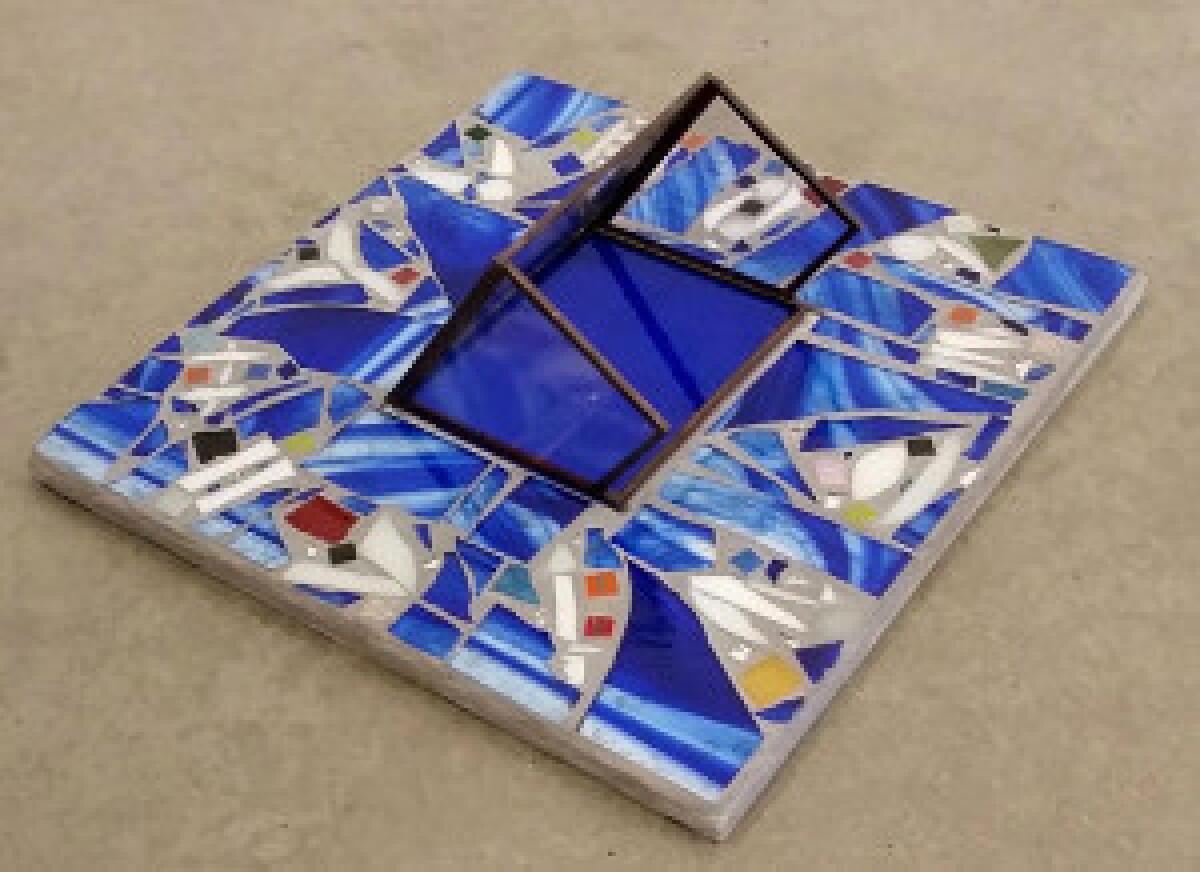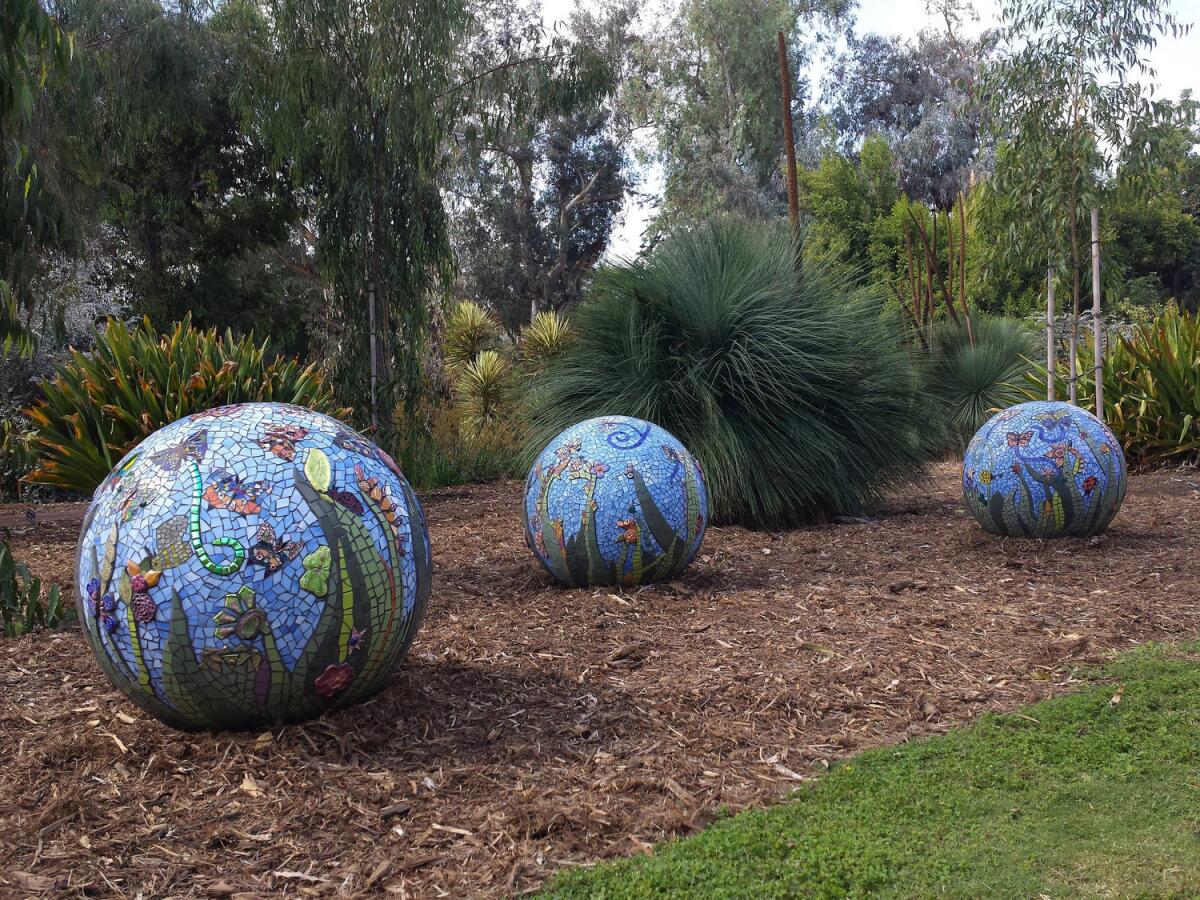On skid row, rebuilding a dream one mosaic at a time
He traveled the world and saw the most beautiful sights: the Great Pyramids of Giza, the Tijuca rain forest in Rio de Janeiro, the Louvre in Paris and the Great Wall of China. He got his bachelor of arts in drama. He loved Shakespeare and quoted passages from “Hamlet.”
But in late 2013, John, who asked to remain anonymous for this article, found himself in dire shape. Following a 42-day stay in the hospital, he sank into a deep depression and remained bedridden for nearly a year.
He finally decided to begin physical therapy at the Skid Row Housing Trust’s Star Apartments, a supportive housing facility for the formerly homeless in downtown Los Angeles. There he found Piece by Piece, a nonprofit organization that provides low-income and previously homeless people with free mosaic art workshops in order to build skills, self-confidence and, eventually, income.
I am gleefully reassembling the shattered fragments of my yesterday’s good life, transforming them into new and beautiful, real and touchable treasures.
— A Piece by Piece mosaic artist
“Now he comes twice a week,” Piece by Piece program director Dawn Mendelson says.

Piece by Piece, which also runs a program in South L.A., uses grant money from the National Endowment for the Arts for its educational programs, including workshops given by visiting artists. These programs help artists master a craft. Piece by Piece maintains an online shop, and in time artists can get paid for their work. But the programs also build what Mendelson calls soft skills, such as collaboration, cooperation and punctuality.
“We have a lot of people who feel disconnected,” Mendelson says. “But they want to connect to someone, and they want to have a community. This is an amazing community. The instructors are so supportive. It makes all the difference.”
Piece by Piece has received a total of $100,000 in the form of six grants from the NEA since 2011. This year’s grant was for $20,000. The largest portion of the grant, $5,000, went toward paying the visiting artists who provide students with hands-on instruction in advanced mosaic art technique, color theory, decoupage, tile-making and mosaic portraiture.
About $350 went to workshop meals. Only $1,400 went toward materials, and this, Mendelson says, is the real selling point of mosaic art.
“Mosaics use recycled material, so it’s not prohibitive,” she says. “The artists can get their own materials. The act of piecing together recycled elements to make something is really empowering.”
John wrote a post for the Piece by Piece blog last year in which he laid out how art has given him a reason for being.
“Broken pieces of glass, like memories in one’s mind are intrinsically worthless. They become valuable only when recombined into something useful,” he wrote. “I am gleefully reassembling the shattered fragments of my yesterday’s good life, transforming them into new and beautiful, real and touchable treasures.”
Piece by Piece gets its artists working in the community through large-scale projects at places like the Los Angeles County Arboretum & Botanic Garden in Arcadia, Universal Studios and most recently Legal Aid, for which participating artists created a series of 12 mandalas measuring 2 feet to 14 feet in width.

Another program brings six women from Skid Row to the Piece by Piece headquarters for six hours per week to work as studio prep associates, which tasks them with readying materials for the artists to use during class.
About 25 students are enrolled in the organization’s certificate program. Other participants choose to attend a class here and there. The pace with which students pick up skills depends entirely on them.
“Some people are going through some big changes in their lives, and so it takes a bit longer,” says Mendelson, who has been a mosaic artist for about 18 years.
Piece by Piece was founded 10 years ago by Sophie Alpert after a trip to South Africa where she saw women infected with HIV being trained to do beadwork that they then sold for income. She determined to bring a similar concept home with her. Mendelson taught the first class.
“We had eight people,” Mendelson recalls. “By the third or fourth month there were 50 people crowding the room.”
“L.A. Without the NEA” is a series looking at a different community group, how its NEA funds were spent, what artistic or public good did or didn’t result and what the cultural landscape would look like if that program were to disappear. Look for more installments to follow at latimes.com/LAwithouttheNEA.
ALSO:
The biggest entertainment stories
Get our big stories about Hollywood, film, television, music, arts, culture and more right in your inbox as soon as they publish.
You may occasionally receive promotional content from the Los Angeles Times.








